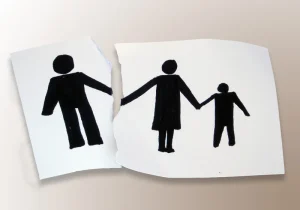
As you embark on this journey, it’s important to take care and not shame yourself for addiction. If your symptoms become more severe, it’s essential to reach out to your treatment team and seek professional help right away. If your symptoms are mild (or perhaps even moderate), your doctor may suggest that you Cure for Alcohol Withdrawal Symptoms reach out to a friend or family member to help you monitor your symptoms at home. In some cases, AWS can be a medical emergency and — if complications arise — potentially life threatening. Alcohol withdrawal is a natural physical response your body goes through when trying to break an alcohol dependence.
Treatments That Help With Alcohol Withdrawal
- Typically, people who develop an AUD are at higher risk for alcohol withdrawal syndrome.
- It also includes binge drinking — a pattern of drinking where a male has five or more drinks within two hours or a female has at least four drinks within two hours.
- Studies show support groups play an instrumental role in helping people develop healthy social networks that result in continued sobriety.
- If you or a loved one has a drinking problem, contact a medical professional or an addiction treatment center to get resources and help to stop drinking.
There are several mild to moderate psychological and physical symptoms you might experience when you stop drinking. This article discusses the causes, common symptoms, and different stages of alcohol withdrawal. https://ecosoberhouse.com/ It also discusses various treatment options for alcohol withdrawal and how you can get help. This page will discuss alcohol withdrawal syndrome, its potential symptoms, and how treatment can help.

Medications
Moderate or binge drinkers can likely quit alcohol on their own. However, medical complications can occur during the acute phase of withdrawal. For those with alcohol use disorder, withdrawal is just the first (but very important) step on a long journey to recovery.
What is alcohol withdrawal?
For people AFAB, that means drinking two or more drinks per day and eight or more drinks per week. However, DTs becomes more and more likely the more you drink and the longer this continues. Because of these symptoms, you won’t be able to make decisions about your medical care. Healthcare providers will treat you to stabilize you (unless you have some kind of advance medical directive on file with them). They may also talk to family, friends or loved ones you previously approved to know and make decisions about your medical care. Many people with DTs also have dehydration, electrolyte imbalances or mineral deficiencies.
Find more top doctors on

If you have stopped using alcohol, haven’t talked to your doctor, and think you might be having DTs symptoms, call 911. Your doctor will start with a physical exam and medical history. They may also give you (or a caregiver or loved one who’s with you) a questionnaire called a Clinical Institute for Withdrawal Assessment for Alcohol Revised Scale. This can help them determine your symptoms and measure the severity of your withdrawal.
Detox Programs That Help With Alcohol Withdrawal
They may also do a blood test called a toxicology screen to measure the amount of alcohol in a person’s system. Blood tests and imaging tests can show if organs, such as the liver, have been affected by a person’s intake of alcohol. Chronic alcohol use can cause complex changes in their brain, including to the neurotransmitters dopamine and gamma-aminobutyric acid (GABA), which affect excitement and a person’s sense of reward. One factor to remember is that the discomfort of withdrawal is only temporary. This thought process can be a useful mental tool when the physical pain of withdrawal is most severe. Tell your close friends and family before you begin your detox, and ask them to support you.


Nearly one-third of U.S. adults will have alcohol use disorder at some point in their lives, and it is estimated that about 1% of those people may get delirium tremens. If untreated, delirium tremens can cause severe symptoms including heart attack, stroke, and death. If you have severe vomiting, seizures or delirium tremens, the safest place for you to be treated is in a hospital.
Delirium tremens and seizures
What helps with alcohol withdrawal at home?
